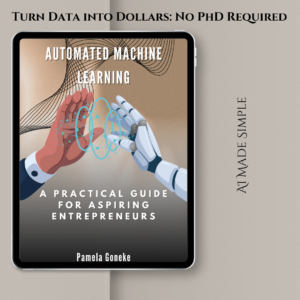Understanding the Importance of Faith in Entrepreneurship
Faith plays a pivotal role in the entrepreneurial journey, serving as a foundational element that fuels perseverance and guides decision-making. In this context, faith can manifest in various forms, including a belief in oneself. Trust in a higher power, or confidence in one’s business vision. Each form of faith contributes uniquely to an entrepreneur’s resilience, particularly during challenging phases of their ventures.
Consider the story of Howard Schultz, the former CEO of Starbucks. Schultz frequently highlights how his belief in the potential of his vision not only propelled. The brand to global recognition but also helped him overcome numerous obstacles along the way. His faith in creating a community-centric coffee experience, despite skepticism from investors, ultimately paid off. Schultz’s journey underscores how maintaining faith can act as a powerful motivator, pushing entrepreneurs to innovate and adapt.
The psychological benefits of faith go beyond mere motivation; they also enhance resilience. Research suggests that individuals who maintain a strong sense of faith exhibit greater emotional stability and are better equipped to handle stress. This emotional fortitude is especially crucial in entrepreneurship, where uncertainty and risk are constants. Entrepreneurs can cultivate their faith by surrounding themselves with supportive mentors. Engaging in positive self-talk, and reflecting on past accomplishments to reaffirm their capabilities.
Moreover, faith can facilitate a connection to a higher purpose, making the entrepreneurial journey feel more meaningful. This connection not only inspires entrepreneurs to stay committed but also helps them navigate ethical challenges more effectively. It instills a sense of responsibility and commitment to their vision, further underpinning the importance of faith in shaping a successful entrepreneurial ethos.
The Role of Patience in Achieving Long-Term Goals
In the fast-paced world of entrepreneurship, patience emerges as a vital virtue that significantly influences success. Entrepreneurs often face numerous challenges and setbacks on their journey, making it imperative to cultivate a mindset that embraces patience. This attribute not only aids in dealing with immediate disappointments but also fosters a long-term perspective, which is essential for achieving substantial goals. A patient entrepreneur can maintain focus on their objectives, critical in navigating the emotional ebbs and flows inherent in building a business.
Setting realistic timelines is one effective strategy for fostering patience. Entrepreneurs should recognize that success typically does not come overnight. By delineating achievable milestones and acknowledging that reaching bigger aspirations often requires time, individuals can cultivate a more patient mindset. Additionally, celebrating small wins along the way reinforces this mindset. Acknowledgment of progress, no matter how minor, fosters motivation and highlights the incremental nature of growth, allowing entrepreneurs to remain committed to their long-term objectives.
Managing expectations is another crucial aspect of nurturing patience. By honestly assessing the business landscape and inherent uncertainties, entrepreneurs can set more appropriate expectations for themselves and their teams. This approach significantly diminishes frustration and disappointment when unforeseen challenges arise, enabling a more resilient response to obstacles.
Anecdotes from seasoned entrepreneurs further illustrate the importance of patience in achieving success. For instance, one entrepreneur shared their journey of launching a startup that faced multiple hurdles before finally gaining traction. Through unwavering perseverance, they managed to foster relationships, refine their product, and secure funding, ultimately leading to the success they envisioned. Such stories resonate deeply, emphasizing that gradual progress, supported by patience, often yields the most fruitful outcomes in the entrepreneurial journey. Agility in adjusting strategies while maintaining a long-term vision can transform setbacks into stepping stones toward success.
Strategizing for Sustainable Success
In the realm of entrepreneurship, the significance of developing effective strategies cannot be overstated. A strong business strategy is foundational for any entrepreneurial endeavor, providing clarity and direction in an often unpredictable landscape. Key components of a robust strategy include thorough market research, explicit goal setting, comprehensive financial planning, and adaptive planning to respond to changing circumstances.
Market research is crucial as it equips entrepreneurs with insights regarding current trends, customer preferences, and competitive dynamics. Understanding the target audience and the competitive landscape allows for more informed decision-making. Additionally, defining clear and measurable goals ensures that efforts are aligned with the overarching vision and values of the business. These goals should encompass both short-term and long-term perspectives, ensuring a balanced approach to immediate needs and future aspirations.
Financial planning is another integral aspect of strategizing for sustainable success. It involves estimating revenues, managing expenses, and ensuring sufficient cash flow to support business operations. Entrepreneurs often utilize financial forecasts to assess their capability to reach milestones and sustain growth over time. Meanwhile, adaptive planning highlights the need for flexibility in response to potential market shifts or unforeseen challenges, enabling businesses to pivot when necessary while remaining resilient.
Practical tools such as SWOT analysis (Strengths, Weaknesses, Opportunities, Threats) and competitor analysis serve as valuable methods for evaluating internal and external factors influencing business strategy. Conducting a SWOT analysis allows entrepreneurs to capitalize on their strengths, address their weaknesses, seize opportunities, and mitigate threats in their environment. Similarly, understanding the competition involves assessing their strategies and performance to identify gaps in the market or areas for improvement.
Effective strategizing, therefore, acts as a roadmap that guides entrepreneurs through the complexities of managing a business. By aligning strategies with personal values and vision, entrepreneurs can create a sustainable framework for growth that navigates challenges while remaining true to their foundational beliefs.
Integrating Faith, Patience, and Strategy for Maximum Impact
In the sphere of entrepreneurship, the harmonious integration of faith, patience, and strategy stands as a pillar for achieving both personal and professional success. Each of these elements plays a critical role, yet their interconnectedness can propel an entrepreneur’s effectiveness to new heights. Faith provides the foundational belief in one’s mission, enabling individuals to persevere amid challenges. Patience fosters resilience, allowing entrepreneurs to navigate the unpredictable nature of business. Meanwhile, strategic planning equips them with the tools necessary to capitalize on opportunities that align with their vision.
To harness these elements synergistically, entrepreneurs can incorporate practices that nurture a positive mindset, remain receptive to feedback, and adapt their strategies as situations evolve. A positive mindset anchored in faith can significantly influence decision-making processes. By affirming their beliefs, entrepreneurs create an internal environment conducive to innovation and creativity. This practice leads to an openness to feedback, where constructive criticism is viewed as an opportunity for growth rather than a setback. Embracing feedback can refine strategies and enhance overall effectiveness.
Moreover, adaptability is paramount. An entrepreneur’s ability to pivot in response to market trends or personal insights while maintaining their core values is crucial. This balance ensures that they are not only responsive but also deeply rooted in their faith, allowing for a congruent approach that resonates with their mission.
To create a balanced approach to their ventures, entrepreneurs can adopt actionable tips: set aside time for reflection to clarify their values and beliefs; consciously practice patience when facing setbacks; and continually refine strategies based on feedback and self-assessment. By nurturing faith and patience alongside strategic thinking, entrepreneurs can create a comprehensive framework that promotes sustainable growth and fosters a harmonious entrepreneurial journey, connecting the spiritual and practical aspects of their pursuits.
-
Product on sale
 The Momentum Effect Breaking Free from ProcrastinationOriginal price was: $49.99.$9.99Current price is: $9.99.
The Momentum Effect Breaking Free from ProcrastinationOriginal price was: $49.99.$9.99Current price is: $9.99. -
Product on sale
 Revenue Revolution- Social Media Strategies for Modern BusinessesOriginal price was: $49.99.$9.99Current price is: $9.99.
Revenue Revolution- Social Media Strategies for Modern BusinessesOriginal price was: $49.99.$9.99Current price is: $9.99. -
Product on sale
 The Comparison Cure: Unlocking Joy in Your Unique JourneyOriginal price was: $49.99.$9.99Current price is: $9.99.
The Comparison Cure: Unlocking Joy in Your Unique JourneyOriginal price was: $49.99.$9.99Current price is: $9.99. -
Product on sale
 Quieting the Inner Critic The Power of Positive Self-TalkOriginal price was: $49.99.$9.99Current price is: $9.99.
Quieting the Inner Critic The Power of Positive Self-TalkOriginal price was: $49.99.$9.99Current price is: $9.99. -
Product on sale
 Fearproof: Turning Failure into Your Greatest SuperpowerOriginal price was: $49.99.$9.99Current price is: $9.99.
Fearproof: Turning Failure into Your Greatest SuperpowerOriginal price was: $49.99.$9.99Current price is: $9.99. -
Product on sale
 Stay Hydrated in Style: Faith Fuels Success Water BottleOriginal price was: $69.99.$35.99Current price is: $35.99.
Stay Hydrated in Style: Faith Fuels Success Water BottleOriginal price was: $69.99.$35.99Current price is: $35.99. -
Product on sale
 Automated Machine Learning: A Practical Guide for Aspiring EntrepreneursOriginal price was: $130.00.$9.99Current price is: $9.99.
Automated Machine Learning: A Practical Guide for Aspiring EntrepreneursOriginal price was: $130.00.$9.99Current price is: $9.99. -
Product on sale
 Python for Data Scientists-Navigating Algorithms for Natural Language ProcessingOriginal price was: $149.99.$19.99Current price is: $19.99.
Python for Data Scientists-Navigating Algorithms for Natural Language ProcessingOriginal price was: $149.99.$19.99Current price is: $19.99. -
Product on sale
 Unlock Unlimited Profits: How MRR Can Transform Your Income!Original price was: $99.99.$7.00Current price is: $7.00.
Unlock Unlimited Profits: How MRR Can Transform Your Income!Original price was: $99.99.$7.00Current price is: $7.00.

2 Responses
[…] This strategic planning tool enables business owners to evaluate their internal strengths and weaknesses while also identifying external opportunities and threats. By systematically analyzing these […]
[…] is a complex psychological phenomenon characterized by feelings of unease, worry, and fear. It can manifest in various ways, […]